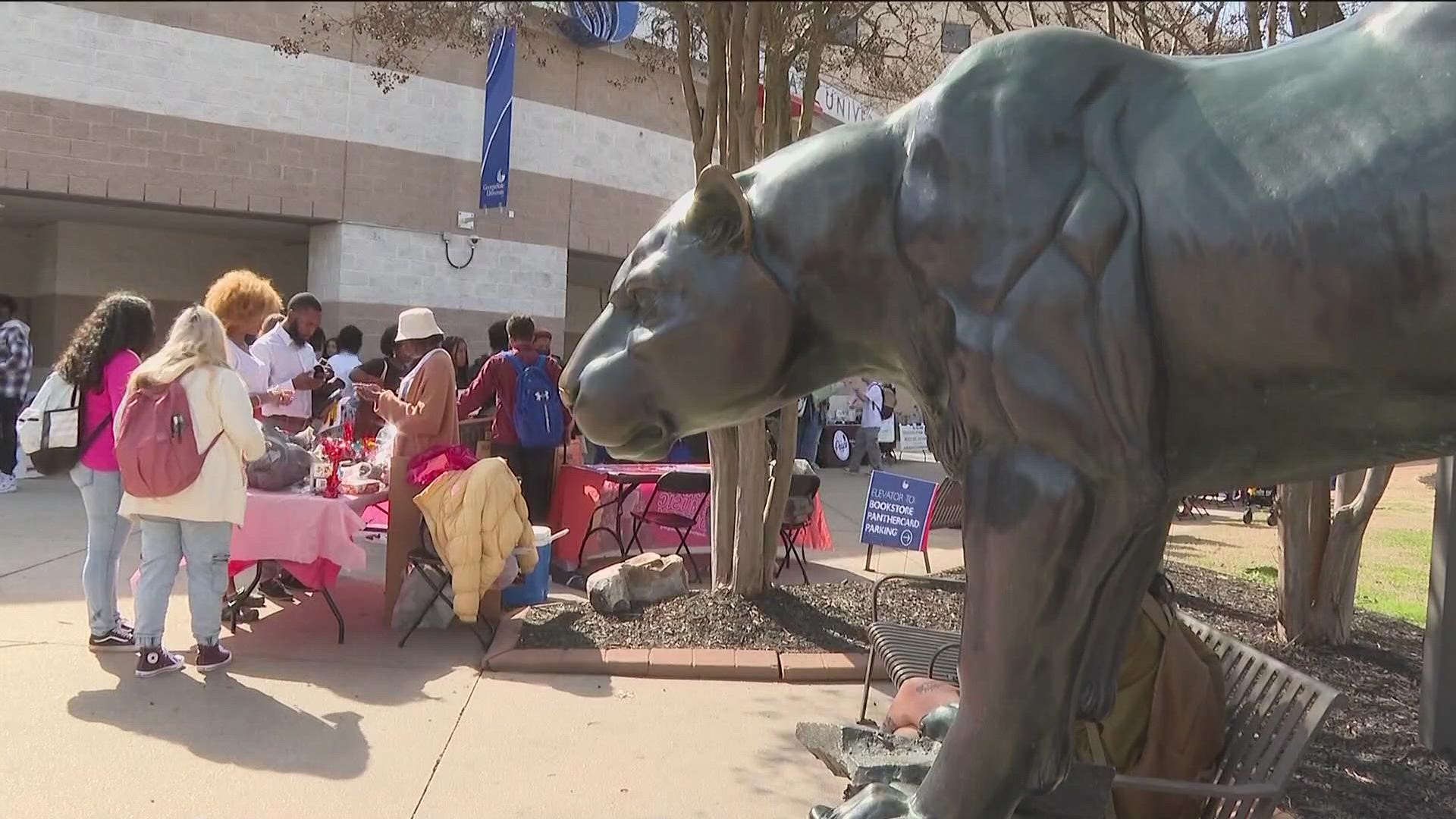ATLANTA — The debate over whether the federal government should forgive millions in student loan debt heads to the Supreme Court this week, as the Court hears oral arguments Tuesday.
The Court's decision could determine if certain borrowers could have up to $20,000 worth of debt canceled -- or if loan payments paused during the pandemic must resume.
“It’s the debt that, I can’t get rid of,” said Morehouse Professor Dr. Stephane Dunn.
Dunn is among the millions of first-generation college students who have been burdened by student loan debt for decades.
“I borrowed so little money, but I owe so much because of the interest rate is compounding, literally it has tripled what I borrowed,” Dunn said.
In 2021, Dunn and million of Americans saw a glimpse of hope, when the Biden administration announced a student debt relief plan that would cancel up $10,000 of loans for anyone making under $125,000 and wipe out $20,000 worth of debt for Pell Grant recipients.
But that hope faded quickly when a federal appeals court blocked it from its rollout. Tuesday, the Supreme Court will hear oral arguments in the lawsuits challenging the plan.
“We gotta find a way to come up and help those taxpayers be able to still provide for their families, you can’t keep adding debt on top of debt, when people looking to come out this pandemic,” said financial strategist, Cassius Butts.
Butts said while the plan has been in limbo, inflation has caused prices to skyrocket, further burdening millions. Butts offered some suggestions for borrowers to ease the strain if payments are reinstated.
“Continue to protect your credit as best as possible," Butts explained. "Contact of your creditor that you have your current student debt with and try to work out a plan there. They’re still companies that are working with students and persons who have student debt."
As for Dunn, she said this issue is more about correcting predictors lending, many who won’t get a benefit even if the Supreme Court rules in favor of the plan.
“First generation college students got the worst of that exploitation and we did not know we’re going to college to buy into lifelong debt," Dunn said.
While student payments are currently paused, that will end 60 days after the case is resolved. If the case isn't resolved by the time the court goes on summer break, payments would restart at the end of August.

